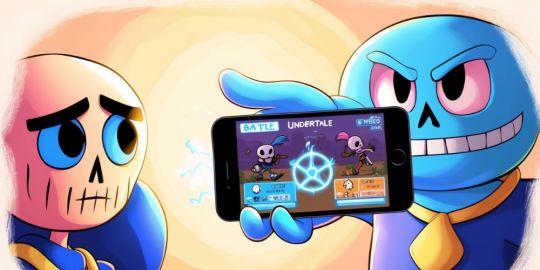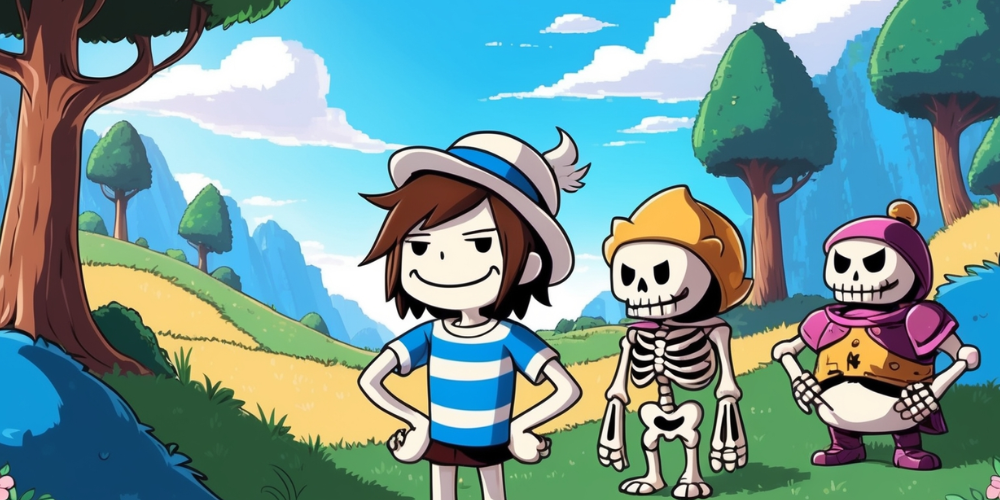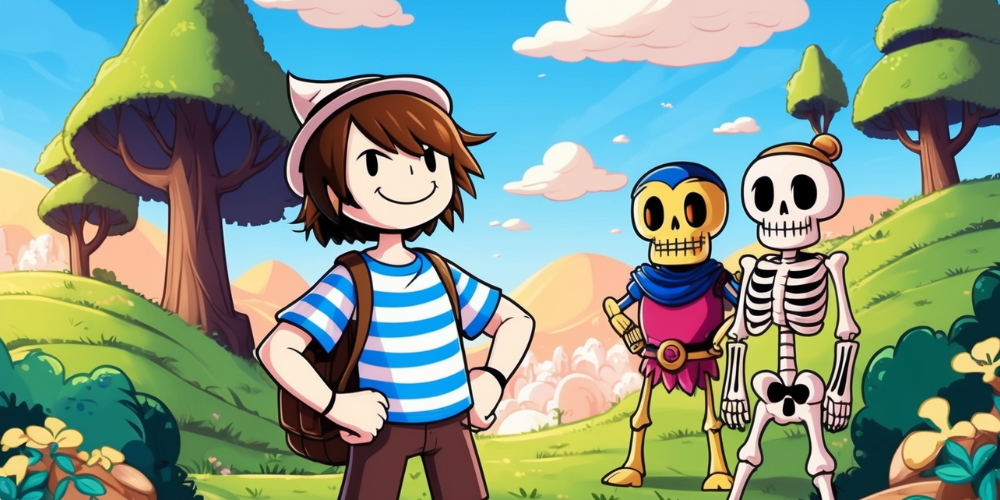
Undertale introduces players to a beautifully crafted underground realm inhabited by monsters and whimsical characters. The game’s retro graphics and simple mechanics draw players into a world that feels both nostalgic and innovative. However, what sets Undertale apart is the moral complexity interwoven with its gameplay and narrative.
The Allure of Pacifism
At the heart of Undertale lies a unique battle system that empowers players with the choice to engage in combat or find alternative methods to resolve conflicts. Unlike conventional RPGs, where defeating enemies is the primary goal, Undertale rewards players who choose non-violence. This non-violent methodology encourages gamers to reflect on the impact of their choices, offering a novel alternative to conventional gameplay.
Diverse Characters with Distinct Morality
The characters encountered throughout Undertale each possess their own moral compass, reflecting various aspects of humanity and the complexities of morality. From the timid monster with a kind heart to the ruthless adversary driven by revenge, each encounter presents players with a stark choice: respect their struggles and seek understanding, or fight them head-on. By choosing dialogue over combat, players learn to navigate these moral dilemmas, discovering layers of depth in each character’s story.
The Impact of Player Choice on Narrative
One of the most compelling elements of Undertale is how player choices shape the narrative. Decisions made in battle have lasting ramifications, influencing dialogue, character relationships, and even ending sequences. For example, sparing a foe might lead to moments of tenderness and connection, while choosing violence often results in isolation and regret. This dynamic approach encourages players to reflect on their choices and motivates them to experience multiple playthroughs to fully grasp the story's richness.

Consequences of Actions: The Save System
Undertale introduces a unique save system that allows players to reset the game whenever they desire. However, this “resetting” comes with its own moral implications. Each time the player chooses to restart their game, their previous actions leave an imprint on the world. Enemies remember whether they were treated with kindness or aggression. This layer of memory adds a haunting quality to the gameplay, as players must grapple with their past choices at every reset—forcing them to reckon with moral regret.
The Nature of Regret and Redemption
Throughout Undertale, themes of regret, redemption, and forgiveness are potent. Characters like Asgore and Toriel embody the struggle to reconcile past decisions with a desire for redemption. Players are faced with the opportunity to forgive or hold onto grudges, often resulting in profound emotional takeaways. The weight of these choices further emphasizes the inevitable human experience of making mistakes and striving to make amends.
The Moral Spectrum: Good vs. Evil
Undertale deftly dismantles the typical binary of good versus evil. The game showcases that morality exists on a spectrum, with characters exhibiting a blend of virtue and vice. As players interact with a variety of foes and allies, they recognize that understanding others’ motivations can lead to deeper empathy. This moral ambiguity challenges players to evaluate their preconceived notions of right and wrong, ultimately fostering a greater appreciation for the complexities of morality.
The Power of Empathy
Central to the gameplay is the theme of empathy. Characters like Papyrus and Sans evoke feelings of warmth through their quirky yet relatable dialogue, encouraging players to see the value in understanding perspectives different from their own. The ability to communicate with enemies instead of fighting adds a layer of challenge that emphasizes connection over combat. As players choose to empathize, Undertale explores the power of compassion in shaping interpersonal relationships.

Consequences of 'True' Pacifism
Achieving a true pacifist run reveals the game’s most impactful moral statement. Players who succeed in this journey unlock a fulfilling ending, reflecting the rewards of kindness and understanding. This non-violent approach reinforces morally sound behaviors as viable paths in gaming and encourages players to reflect on their conduct outside of the game world. The fulfillment derived from achieving the true pacifist ending serves as a testament to the positive impacts of empathy and compassion.
Challenging the Player's Morality
Undertale often places players in morally challenging situations, urging them to reconsider their values. For instance, encounters may lead players to make swift decisions that compass questioning. Should they indulge in a ruthless attack or pause to consider a character’s background and motivations? This friction generates rich discussion around the nature of choice and accountability within the game’s framework.
Player Connection through Emotional Engagement
The game’s design fosters emotional engagement, encouraging players to invest in the characters' narratives. The emotional stakes are raised when players see the repercussions of their choices manifest in character reactions and plot outcomes. The balance of humor, sadness, and joy amplifies these feelings and leads players to forge meaningful connections as they navigate the choices presented to them.
The Reflective Mechanism of 'The Judgement' System
Undertale introduces the judgement system as a tool that reflects players' actions. At crucial points, the game evaluates the player's style of play, whether it’s rooted in kindness or brutality. The result of this assessment leaves a lasting impression, reminding players that their choices—whether conscious or unconscious—have profound implications not just within the game but in broader contexts of moral reflection.

Interaction Between Humor and Morality
Undertale blends humor with its moral undertones, creating an experience that is both light-hearted and thought-provoking. Characters often deliver jokes that can be dark yet poignant, forcing players to grapple with their emotional weight. This interplay between humor and gravity not only enhances the storytelling but challenges players to rethink how they perceive morality. Casual levity can mask serious underlying principles, prompting deeper reflections on the choices players make.
Revisiting Choices: The Importance of Multiple Playthroughs
To fully appreciate Undertale's moral complexity, players are encouraged to explore multiple playthroughs, experiencing each possible outcome. Not only does this approach deepen their understanding of the narrative, but it also prompts personal reflection on their values. The differences in outcomes serve to reinforce the notion that every choice matters, urging players to continuously analyze the implications of their actions.
Legacy of Undertale: Shaping Morality in Gaming
Undertale's distinctive approach to ethics and player decisions has made a lasting impression on the world of gaming. By challenging players to engage with moral decisions that truly resonate, the game has set a precedent for future titles to explore similar themes. The merging of interactive storytelling with ethical considerations signals a remarkable shift in the way narratives are constructed in games, encouraging deeper conversations about morality in gameplay.